Belgium recently surpassed Iraq to become the country that has gone longest without forming a government, after elections in June 2010 handed a plurality to a Flemish separatist party. In an email interview, Dave Sinardet, professor of political science at the Free University of Brussels and the University of Antwerp, discussed Belgium’s long-running political crisis. WPR: Why have tensions between Wallonia and Flanders become so pronounced in recent years? Dave Sinardet: Three key elements can help to explain the complex political crisis in Belgium. First, there is a structural element: the absence of national political parties. All parties are either […]
Latest Archive
Free Newsletter

For decades now, strategic experts have predicted that our world was on the verge of a break-out in nuclear proliferation that would see us grappling with two- or three-dozen nuclear powers. Indeed, the inexorable spread of nuclear weapons is the closest thing to an unassailable canon in the field of international relations, as one cannot possibly employ the term “nuclear proliferation” without preceding it with the modifier “increasing.” This unshakeable belief, wholly unsupported by any actual evidence, drives many Cold War-era “wise men” to argue that mutually assured destruction (MAD) and strategic deterrence in general are obsolete and therefore immoral […]
There are plenty of compelling arguments against the intervention in Libya. The fact that it takes place as President Barack Obama embarks on his first tour of Latin America highlights the way in which our disproportionate and outdated engagement in the Middle East distracts us strategically from what I consider to be more important priorities in our own hemisphere. The delay in taking action allowed for a broad if fragile multilateral mandate, but also probably reduced the likelihood that the intervention will be immediately decisive and thereby raised the risk of a drawn-out stalemate. I, for one, think we could […]
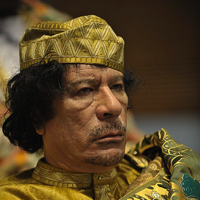
Thursday’s U.N.-sanctioned no-fly zone over Libya and the military strikes against Moammar Gadhafi’s ground forces that followed over the weekend may have come too late for Libya’s freedom-seeking people. Even a ceasefire or internationally imposed standoff between Gadhafi’s forces and the anti-government fighters in Benghazi and elsewhere would merely maintain the status quo, with Gadhafi remaining in control of most of the country. If so, Gadhafi will have demonstrated to autocrats everywhere that terror is an effective means of maintaining power at home and instilling uncertainty and fear abroad. This should come as no surprise, as Gadhafi is not new […]
In addition to spreading across the region, the Arab uprisings are inspiring peaceful demonstrations away from the Middle East — perhaps most notably, albeit with little international news coverage, in the former Soviet bloc country of Armenia. More than 10,000 anti-government protesters rallied last week in the capital, Yerevan, where according to the Associated Press, opposition leader and former President Levon Ter-Petrosian claimed the demonstration was inspired by the revolts in the Arab world. Outcry has mounted since Serzh Sargsyan, a former prime minister, became the nation’s third president in a disputed 2008 election, the immediate aftermath of which was […]
Pulling back for a second from the debate over whether the U.S. should intervene in Libya, the process by which the actual international response unfolded is cause for optimism. Among the big-puzzle pieces that shifted, I see the following: – The U.S. as “law-abiding” global actor. President Barack Obama has already taken hits for indecisiveness and worse, but the fact that the administration held firm on multilateral mandates highlights its commitment to a multipartner world. – France and Britain as European security guarantors in the Mediterranean and Northern Africa. It remains to be seen how involved NATO will become in […]
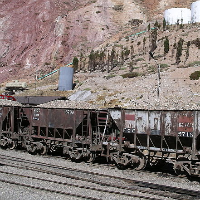
When it comes to good governance in the information age, transparency has few competitors as the fix du jour. This is especially true when it comes to oil, gas and mining revenue in developing countries, where many people rightly consider transparency an essential first step in curbing government corruption. But the discussions at the “Transparency Counts” conference, held by the Extractive Industries Transparency Initiative (EITI) in Paris earlier this month, strongly suggest that knowing how much money is coming in to government coffers is not enough if that money does not improve people’s lives. Natural resources are hot right now, […]

Writing in his World Politics Review column this week, Thomas P.M. Barnett warned that the United States’ response to the Libyan uprising risks turning Ian Bremmer’s and David Gordon’s prediction of a “G-zero” world into a self-fulfilling prophecy. Specifically, Barnett argued that by failing to take the lead in organizing an intervention to tip the scales in the Libyan civil war on behalf of the opposition to Moammar Gadhafi, the Obama administration was “purposefully abdicat[ing] its global leadership role.” Another reading is that the administration’s reaction to the Libyan uprising reflects the degree to which it allowed itself to be […]
Contrary to what opponents of a military intervention in Libya are claiming, the U.S. is not at war with Libya. In fact, it’s very possible that the U.S. will not even be directly engaged in any eventual acts of war against Libya. And though endgames, outcomes and objectives are valid concerns and necessary considerations, much of the hand-wringing is premature. The U.N. Security Council resolution will allow outside powers to target Moammar Gadhafi’s air and ground forces to keep them from delivering the final blow that was all but imminent even as the council voted on the measure last night. […]
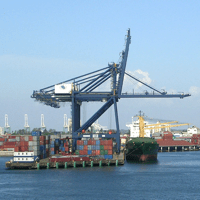
Editor’s note: This is the last of a five-part series examining security and development aid in East Africa. Part I provided an overview of the challenges facing East Africa. Part II examined the overlap between public health and security challenges. Part III examined the overlap between small-arms trafficking and WMD nonproliferation. Part IV examined the overlap between counterterrorism and efforts to contain criminal violence. Part V provides success stories for the security-development model and discusses next steps. In East Africa, pressing regional challenges — including the inability to detect and treat disease, the flow of illicit firearms across unsecured borders […]
Australia and Mongolia recently signed a number of agreements to increase bilateral business and educational cooperation. In an e-mail interview, Li Narangoa, a professor in the School of Culture, History and Language at the Australian National University, discussed Australia-Mongolia relations. WPR: What is the extent of existing trade between Australia and Mongolia? Li Narangoa: Trade between Australia and Mongolia has been small, with a total value of about $25 million in 2010. Though Australia and Mongolia established diplomatic relations in 1972, a serious trade relationship began only in the 1990s, when Mongolia introduced a democratic political system and free-market reforms. […]
Next week the United States will mark the 8th anniversary of the invasion of Iraq — widely considered one of the worst foreign policy disasters in American history. Meanwhile, more than 100,000 U.S. troops remain mired in Afghanistan, nine years after the Taliban were toppled from power. Both conflicts are daily reminders that the use of U.S. military force can have unforeseen and often unpredictable consequences. For that reason, force should be considered only in the most pressing of national security circumstances. Unfortunately, if the response to the uprising in Libya is any indication, it seems many members of the […]
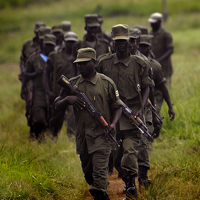
Editor’s note: This is the fourth of a five-part series examining security and development aid in East Africa. Part I provided an overview of the challenges facing East Africa. Part II examined the overlap between public health and security challenges. Part III examined the overlap between small-arms trafficking and WMD nonproliferation. Part IV examines the overlap between counterterrorism and efforts to contain criminal violence. Part V will provide success stories for the security-development model and discuss next steps. On July 11, 2010, bombs ripped through crowds gathered to watch the World Cup soccer final in downtown Kampala, Uganda, leaving 76 […]
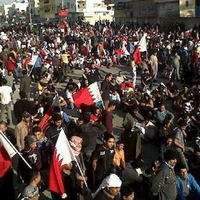
If there is one thing we have learned from the events of the last few weeks, it is to expect the unexpected and to at least consider the possibility that worst-case scenarios will materialize. No one could have predicted that in a matter of a few hours the world’s third-largest economy would suffer a triple disaster — a massive earthquake, a devastating tsunami and a slow-motion nuclear nightmare — just as no one expected that a fruit salesman in Tunisia would trigger a chain reaction of uprisings in the Middle East. Nassim Taleb called these high-impact, low-probability events Black Swans, […]
While international attention is focused on Libya, violence has also erupted on the other side of Africa, in Côte D’Ivoire. Tensions have been steadily rising since the country’s incumbent president, Laurent Gbagbo, refused to step down after challenger Alassane Ouattara was widely recognized as having won November’s election. But intense gun battles erupted last weekend, when, according to the New York Times, forces loyal to Gbagbo began an assault to drive Ouattara’s fighters out of the Abobo district of Abidjan, the country’s financial capital. The escalation in the fighting has prompted roughly 200,000 people to flee the city, and raises […]
